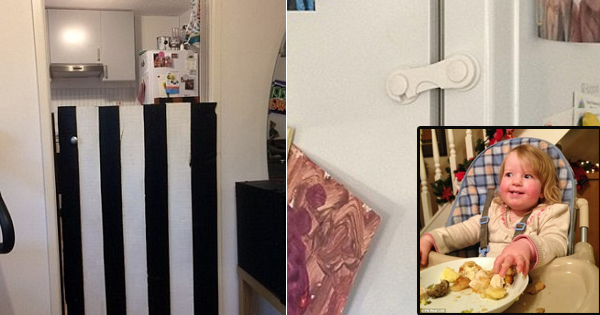Advertisement
Five-year-old Molly Bywater was born with Prader-Willi syndrome, a genetic condition that causes children to have weaker muscles, feeding difficulties, and slower growth. In childhood, people with Prader-Willi syndrome also experience an insatiable appetite that causes them to chronically overeat.
Molly was diagnosed with Prader-Willi syndrome when she was just three weeks old. When her mother, Jo Bywater, first received the news, she blamed herself for giving her daughter a potentially debilitating condition.
Now, five years later, Jo is comforted by the fact that Molly’s growth and development has progressed fairly normally.
However, Jo is now more concerned about Molly’s appetite.
Because Prader-Willi syndrome often gives its patients the urge to constantly eat, Jo has had to figure out how to keep food away from her daughter.
“At school, if she finds a loaf of bread, she'll eat slices and slices, so now she can't be left alone and has full time supervision to ensure that doesn't happen,” Jo explained. “She managed to sneak into a food technology room the other day, though, pretending she was just going to get her coat and started eating bread before she was caught.”
Inside their house, Jo has installed plastic locks on all the cabinet, pantry, and refrigerator doors. Further preventive measures include heavy duty garden gates.
Originally, Jo thought using regular, child-proof stair gates would keep Molly out of the kitchen. She was wrong.
Molly managed to get around each of these smaller gates, whether it was going over, around, or even below these barriers, to get access to the food in the house.
Although it’s tiring for Jo to put so many preventive measures in place inside the house, she’s incredibly worried for her daughter’s health and safety if these barriers are removed.
“Everything revolves around food and she’ll even wake up at 2 am, asking it it’s time for breakfast yet,” Jo said.
Her greatest fear is that Molly will someday eat so much food, she’ll cause her stomach to rupture or put herself in other potentially fatal situations. “It’s frightening, because there’s no cure for it,” Jo admitted. “We are unsure of what the future holds, but for now we are controlling it.”




